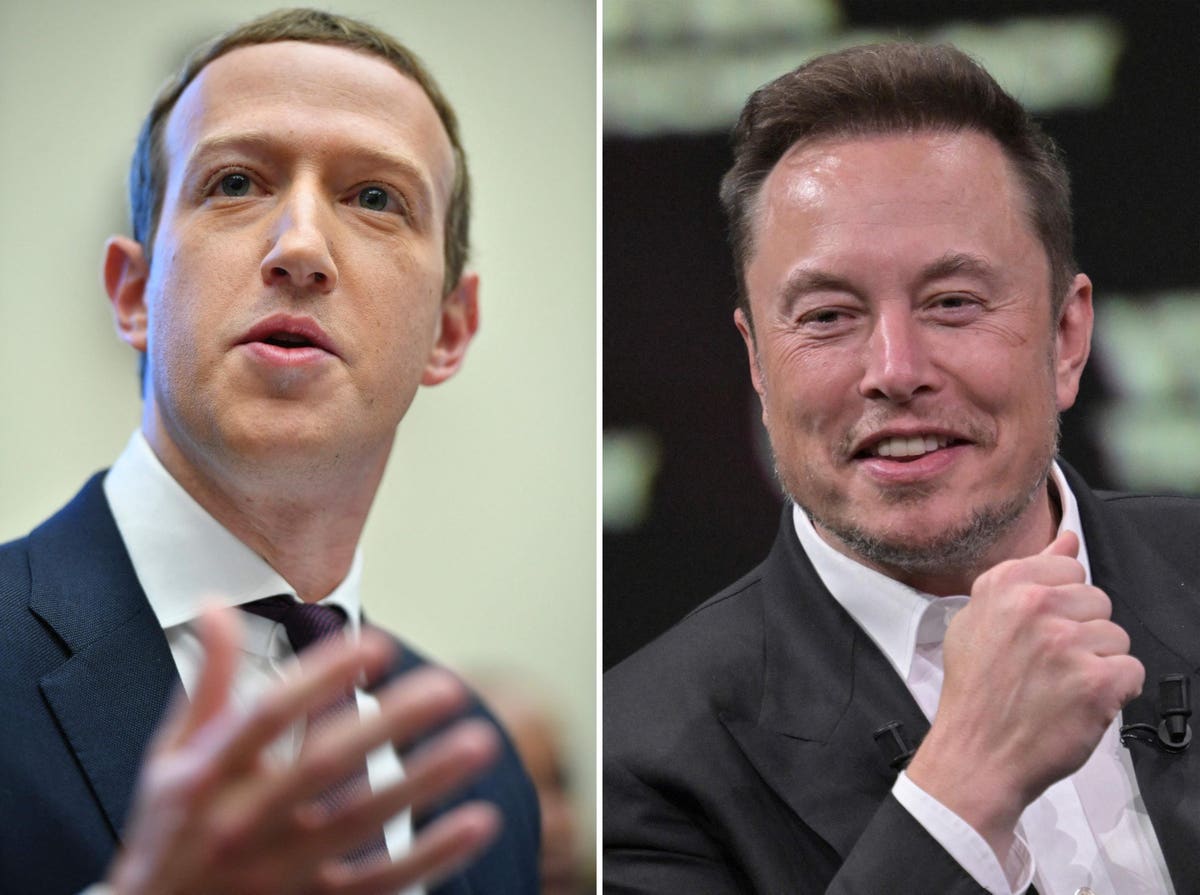(COMBO/FILES) Mark Zuckerberg and Elon Musk are simply two CEOs attempting to determine working from dwelling … [+]
The COVID pandemic-induced development in working from dwelling (WFH) continues rippling via the financial system, highlighting tensions for each workers and employers. In case you make money working from home a minimum of a part of time, you’re a part of a serious shift within the skilled labor market, however don’t get too comfy—issues will maintain altering.
Final week, Meta began requiring employees to work within the workplace a minimum of three days every week. This was foreshadowed earlier in March, when Zuckerberg blogged that inner efficiency knowledge confirmed engineer productiveness, particularly for these “early of their profession” rose by doing “in-person work with teammates.”
It is a new company coverage for Meta. It differs from the coverage in Zuckerberg’s 2021 inner memo, which allowed all full-time employees to use for WFH. At the moment, Zuckerberg stated “we’ve realized over the previous yr that good work can get achieved wherever, and I’m much more optimistic that distant work at scale is feasible.” Now he, and Meta, are altering.
In distinction, Tesla
TSLA
Their variations at these extremely profitable companies replicate how corporations are struggling to include working from dwelling with wants for innovation, managerial supervision, and different in-office duties.
The difficulties aren’t shocking to labor and employment consultants. Jobs involving groups, particularly new workers needing onboarding, profit from in-person work. New employees can study particular duties, but in addition the corporate’s work tradition. They will construct relationships with managers, or simply ask co-workers for assistance on new or complicated duties.
In 2020, administration professional Peter Cappelli famous these issues in a skeptical article, “Why We Received’t Hold Working From Residence.” He stated WFH “works greatest for duties which can be self-contained,” however makes “massive calls for on efficiency administration,” and “doesn’t work effectively” for team-based and cooperative duties.
However even given Cappelli’s insightful remarks, WFH has stayed larger than many (together with me) predicted. Why?
Stanford’s Nicholas Bloom, one in all our greatest WFH students, thinks the analysis “portend(s) an everlasting shift to make money working from home.” Bloom and his colleagues word that 12% of full time grownup employees now are absolutely or principally distant, and one other 29% are hybrid, “4 instances the (pre-pandemic) 2019 fee and ten instances the speed within the mid-Nineteen Nineties.”
Among the change is because of expertise. Most individuals now have entry to high-speed broadband web service, a necessary a part of WFH. Pew Charitable Belief analysis exhibits no one had such providers within the Nineteen Nineties, however by 2021, “roughly three-quarters of American adults have broadband web service at dwelling.”
The standard of internet-based providers additionally has improved dramatically, sparked partly by buyer demand. These of us who had been round within the early days of video conferencing bear in mind fixed technical failures—useless microphones, lack of footage and graphs, inaudible colleagues, and delayed and interrupted conferences.
However Zoom, Microsoft
MSFT
OK, so you may work extra simply from dwelling. However why do employers permit it? Keep in mind that work consists of some inherent battle between employers and workers. (One of many best ideas to clarify to new economics college students is “the disutility of labor”—you don’t like doing it, and somebody has to pay you for it.)
You may not go so far as Marxist students like Harry Braverman. His masterwork Labor and Monopoly Capital: The Degradation of Work In The Twentieth Century posited an irreconcilable battle between capitalists’ needs for extra output at decrease prices versus employees’ need for earnings and leisure.
However employers aren’t charities (as Meta confirmed with its layoffs of over 20,000 employees since final November.). They’re attempting to get as a lot revenue they’ll, with brief and long run labor drive methods assembly their objectives and staying aggressive whereas conserving prices low.
WFH is essential and attention-grabbing exactly as a result of companies haven’t figured the optimum technique but. Meta’s altering insurance policies underscore this uncertainty.
Bloom and a few colleagues present this dramatically in different analysis. Analyzing job emptiness posts, they present how nations, industries, and even companies in the identical business differ considerably in permitting working from dwelling. For instance, in postings for automotive engineers, Honda mentions distant work 45% of the time, in comparison with 23% at Normal Motors
GM
The bottom? Not surprisingly, Tesla—at zero p.c. How can 4 profitable companies in the identical business, recruiting for a similar occupation, have such numerous WFH insurance policies?
Musk’s hyperbole about morality apart, each his rejection of WFH and Zuckerberg’s shifting insurance policies illustrate that companies and homeowners don’t know what to do with distant work but. We’re in for an excellent deal extra of experimentation and uncertainty as WFH evolves, particularly if and when the job market slows down and employers get extra leverage over workers.









